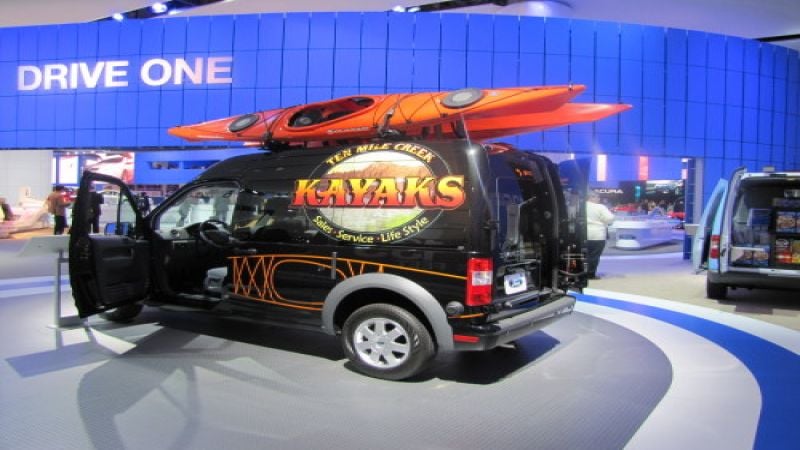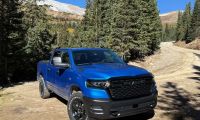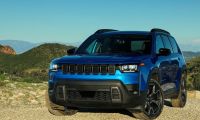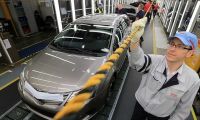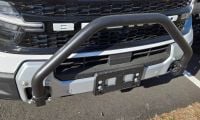The Ford Transit, shown hear at NAIAS 2010, will be, along with the MINI, one of the first vehicles to use the new Bosch EL generator.
According to the company website www.Bosch.com , their engineers have improved the electrical configuration of their generators with ultra-efficient diodes and optimized materials to such a degree that it increases the efficiency of all variants to over 70 percent.
Here’s what this new line means: At engine idle – which is equal to a generator speed of approximately 1,800 revolutions per minute – the EL generators produce about 10 percent more power. That makes them an ideal complement to start-stop systems, as they ensure the fastest possible battery charging. As a consequence, the start-stop function can be used more frequently. Think win-win here.
Furthermore, an additional analog or digital communications interface creates the conditions for intelligent generator regulation. This in turn allows most of the electricity to be generated in coasting mode. That alone means a fuel saving of up to 2 percent.
According to the technical information available on the website, the EL series is available in various sizes and covers a performance range of 130 to 210 amperes (at 6,000 rpm). The generators are therefore ideal for the reliable energy supply of the most diverse vehicle electrical systems – from passenger cars to vans. The first vehicle to use this new product is the Ford Transit.
The Bosch Group is already a leading global supplier of technology and services. In the areas of automotive and industrial technology, consumer goods, and building technology, they are considered by many engineers to be one of the better innovators.
Bottom line here for autos is, electrical systems need to be robust. The demand, after all, is not going down, but up. Electrical efficiency will, therefore, become the challenge from here on out.
Set Torque News as Preferred Source on Google

